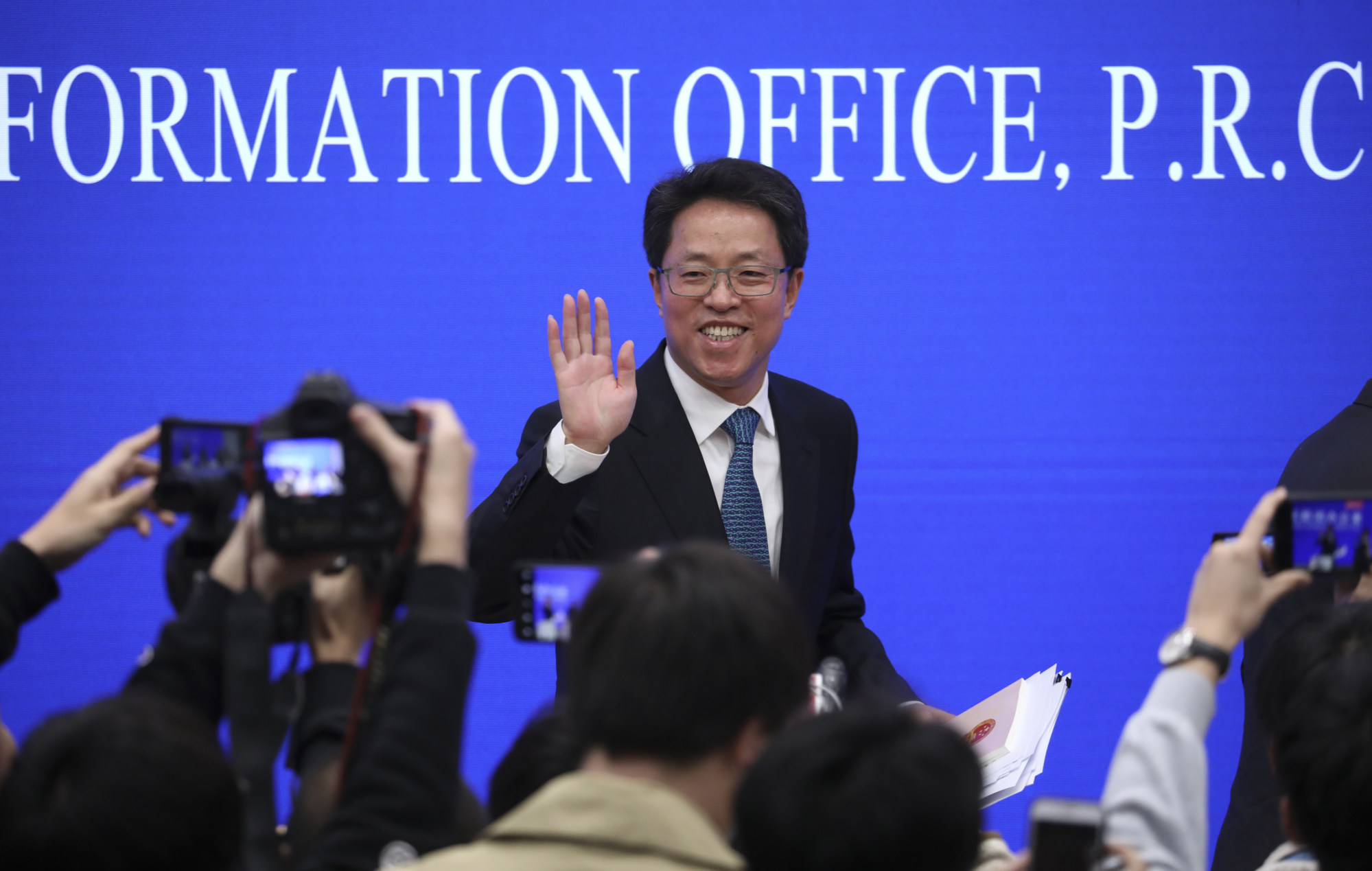Beijing’s removal of Zhang Xiaoming from top advisory body is ‘normal leadership reshuffle’, Hong Kong’s ‘two sessions’ delegates say
Beijing’s removal of Zhang Xiaoming, an official who oversaw Hong Kong affairs during the 2019 social unrest, from his role as deputy secretary general of the nation’s top advisory body was a “normal leadership reshuffle”, city delegates heading to key annual political meetings in the capital said on Sunday.
As more than 200 politicians and tycoons from Hong Kong descended on the capital in the afternoon for the “two sessions”, or lianghui, the Post learned that some would take part in their first meeting with top mainland Chinese officials this evening.
Two sources said Xia Baolong, the director of the Hong Kong and Macau Affairs Office (HKMAO), who recently concluded a one-week visit to Hong Kong, would exchange views with city members of the Chinese People’s Political Consultative Conference (CPPCC) in a closed-door session.

A delegate, who wished to remain anonymous, said it would be a welcoming reception where Xia was expected to brief them on the central government’s expectations for the representatives.
Xia succeeded Zhang in 2020 to head the HKMAO, which was overhauled last year to report directly to the Chinese Communist Party. Zhang led Beijing’s liaison office in Hong Kong from 2012 to 2017, and then served as the head of the HKMAO for 2½ years.
The official’s removal from the CPPCC was announced on Saturday evening, two days before the top advisory body convenes for its annual session on Monday. The National People’s Congress (NPC) will begin its meeting the following day.
State broadcaster CCTV gave a brief report on the reshuffle, without providing a reason for the removal of the 60-year-old minister-level official, who is below the usual retirement age.
Asked whether Zhang’s stepping down was related to his role as the head of HKMAO in 2019, when anti-government protests rocked the city, NPC delegate Chan Yung said: “It’s among a series of normal reshuffles that demonstrate the central government’s comprehensive considerations.”
‘Two sessions’ delegates push to keep Hong Kong unique, help mainland firms
‘Two sessions’ delegates push to keep Hong Kong unique, help mainland firms
“We respect and trust the decision,” said Starry Lee Wai-king, Hong Kong’s sole member of the NPC Standing Committee, without elaborating.
Priscilla Leung Mei-fun, an NPC member and Hong Kong lawmaker, thanked Zhang for his contribution to the city and said there could be “other work arrangements” for him but she did not want to speculate.
A pro-establishment heavyweight said on condition of anonymity that the bloc was reminded on Saturday to “refrain from commenting” on any reshuffles involving top officials during the annual sessions in Beijing.
As the pro-Beijing loyalists from Hong Kong left for the capital, many called for improved policies to attract more mainland tourists to the city.
Among the popular proposals is to raise the duty-free shopping limit for mainland tourists from 5,000 yuan (US$695) to 30,000 yuan (US$4,170). This has not changed in almost three decades.
This was jointly suggested by delegates from the city’s major parties – the Democratic Alliance for the Betterment and Progress of Hong Kong, the Hong Kong Federation of Trade Unions and the Liberal Party.
The ‘two sessions’: what to watch for during China’s biggest political event of the year
The ‘two sessions’: what to watch for during China’s biggest political event of the year
The Liberal Party’s CPPCC member Michael Lee Chun-keung also proposed creating a “Greater Bay Area Identity Card” as an official identification document for all 86 million people in the area to allow for “more seamless” travel across the border.
He said that if electronic health records could be stored in the card, it would encourage more mainlanders to travel to Hong Kong for medical and healthcare services.
Stanley Ng Chau-pei, an NPC deputy and president of the trade unions federation, said he hoped Beijing would revive a multiple-entry visa scheme for Shenzhen residents and expand it to cover more mainland cities.


